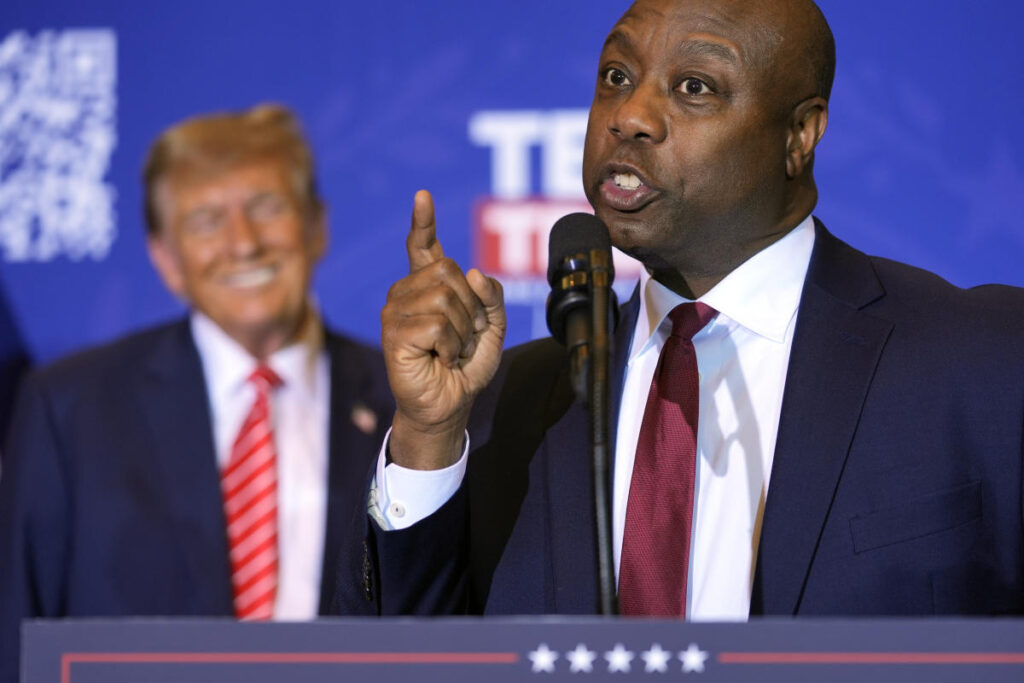As the 2024 election cycle unfolds, the Republican Party is witnessing intense intraparty conflict primarily fueled by tensions between President-elect Donald Trump’s MAGA faction and traditionalist Republicans. This new front is particularly manifesting in disputes over leadership appointments within key Senate campaign organizations, such as the National Republican Senatorial Committee (NRSC) and the Senate Leadership Fund, a significant GOP super PAC. Typically a noncontroversial sphere, the hiring decisions at these institutions have devolved into an arena of ideological scrutiny, as MAGA-aligned activists express concern over the loyalty of prospective leaders and their ties to Trump’s political agenda. An emblematic case in point is the appointment of Brendan Jaspers as the NRSC’s political director for the 2026 midterms, which has ignited backlash among Trump loyalists due to Jaspers’ previous association with the anti-Trump Club for Growth.
The hesitations surrounding Jaspers stem from his professional history as the director of campaigns at the Club for Growth, a group that initially opposed Trump during the 2024 primaries. Although Club Vice President Tom Schultz defended Jaspers, asserting his focus was on other races and issues of school choice rather than opposing Trump, skepticism lingers in MAGA circles. A senior Trump adviser contended that Jaspers’ hiring exemplifies a persistent trend where the NRSC seems to favor individuals linked to past anti-Trump efforts rather than those closely tied to Trump’s movement. This hiring controversy illustrates a broader struggle for influence within the Senate GOP structure, especially following the exit of long-time GOP leader Mitch McConnell, which has left room for Trump’s allies to assert their preferences in a contest for power.
The leadership transition at the NRSC has taken on a personal dimension, especially regarding the hiring of Stephen DeMaura, a former adviser to ex-Vice President Mike Pence, who has emerged as a point of contention among Trump loyalists. DeMaura’s appointment as deputy executive director rather than his initially anticipated role as executive director, along with the elevation of Jennifer DeCasper into that prime position, was unexpected and ignited frustrations from MAGA supporters including vocal critiques on various social media platforms. Despite Scott’s claim of excitement over the new organizational structure, the conflicted reception from Trump supporters highlights a strategic misstep in a party eager to consolidate its base ahead of crucial midterm elections.
The competition for leadership roles in the Senate Leadership Fund also reflects the ideological divide within the party. Reports suggest that Kevin McLaughlin, a GOP consultant perceived as insufficiently loyal to Trump, might not be considered for a top position despite circulating rumors about his candidacy. McLaughlin vehemently denied any issues regarding his loyalty, emphasizing he had not seriously engaged in discussions regarding the SLF’s leadership. The discontent rooted in hiring decisions not only showcases personal grievances but also illustrates a wider ideological battle characterized by competing factions within the Republican Party—those aligned with Trump’s MAGA platform versus traditionalist wings that have historically held power.
Public outbursts from notable Trump allies, including campaign co-chair Chris LaCivita and far-right activist Laura Loomer, serve to amplify the tensions surrounding the NRSC’s staffing decisions. Their criticisms emphasize the perception of inadequate loyalty among new hires and raise questions about the organizational direction under Scott’s leadership. The evolving dynamics among GOP factions highlight the precarious balance that must be struck to unify disparate elements of the party, particularly as various actors vie for funding, resources, and influence over campaign strategies leading to the 2024 elections.
Scott’s strategic choices, juxtaposed against his relationship with Trump, suggest a critical moment of reckoning for the party. Many strategists see these hiring conflicts as self-inflicted wounds that not only disrupt party unity but could also impact the NRSC’s effectiveness in trying to regain Senate control. The upcoming election period will require Scott to navigate these turbulent waters carefully, not only managing internal dissent but also using Trump’s influence effectively to ensure the success of their collective efforts. Notably, Scott is charged with bolstering the party’s competitiveness amidst rising demands on Trump’s time and attention as he tries to champion multiple campaign groups.
Finally, the leadership struggle within the GOP reflects a broader ideological shift as Trump’s brand of populism becomes increasingly paramount. With the Senate Leadership Fund set to play a prominent role in upcoming Senate races, the decisions made by Scott and his team will reverberate throughout Republican efforts to consolidate power. As they look ahead to the 2024 elections, both traditionalists and MAGA Republicans will have to grapple with the prospect of forging a united front while addressing lingering tensions and reconciling their divergent paths in the party’s future. Ultimately, the outcome of this internal fracas could either solidify or fragment the Republican coalition, setting the tone for the election cycle and the party’s trajectory going forward.

